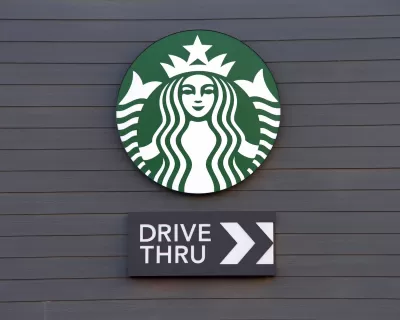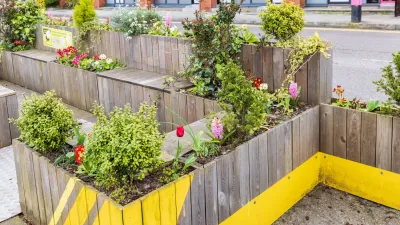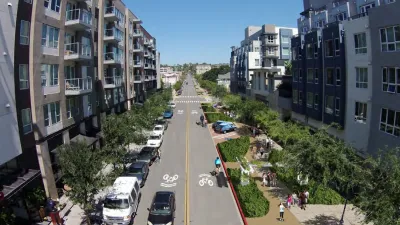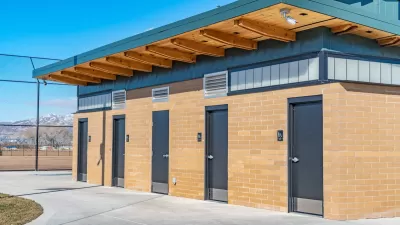Starbucks is shifting to more drive-throughs and less comfy armchairs, but that doesn’t mean the demand for common spaces outside of home and work is waning.

For years, a local Starbucks coffeeshop was a welcome respite for students, freelance workers, and others seeking a comfortable hangout with a clean bathroom. While Starbucks is a private business, it was once common for patrons to sit for hours while making only a couple of purchases. This made Starbucks and its ilk a valuable ‘third place,’ a communal space separate from home or work where social interactions happen.
“These places could be anything from neighborhood watering holes to bookstores, barbershops, community centers or even stoops,”write James Rojas and John Kamp in Strong Towns. By 2022, Starbucks and other businesses are shifting to a new model: “Across the country, cozy lounge chairs were replaced with metal stools — where seating wasn’t done away with altogether. Bathrooms, outlets and tables also disappeared. The company even departed from its 1990s ethos and promised to outfit 90% of new locations with “state-of-the-art” drive-thrus.”
The authors quote Nathaniel Meyersohn, who wrote that Starbucks is “choosing the transactional over the experiential,” explicitly redefining the third place to include digital technology, reducing the importance of the physical space. “The Starbucks where you studied for finals with your classmates, recovered from that awkward first date, won a chess match and took that job interview no longer exists. It’s now a conveyor belt where speed rules and the ideal customer experience is spending as little time in the store as possible.”
While this could seem as a harbinger of doom for other third places, Rojas and Kamp note that other urban cafes, parks, and pocket plazas, many created during the pandemic, are thriving; “the appetite for traditional, physical third places hasn’t disappeared.”
FULL STORY: From Hang Out To Hurry: Why Starbucks Wants To Redefine “Third Place”

Alabama: Trump Terminates Settlements for Black Communities Harmed By Raw Sewage
Trump deemed the landmark civil rights agreement “illegal DEI and environmental justice policy.”

Study: Maui’s Plan to Convert Vacation Rentals to Long-Term Housing Could Cause Nearly $1 Billion Economic Loss
The plan would reduce visitor accommodation by 25% resulting in 1,900 jobs lost.

Planetizen Federal Action Tracker
A weekly monitor of how Trump’s orders and actions are impacting planners and planning in America.

Waymo Gets Permission to Map SF’s Market Street
If allowed to operate on the traffic-restricted street, Waymo’s autonomous taxis would have a leg up over ride-hailing competitors — and counter the city’s efforts to grow bike and pedestrian on the thoroughfare.

Parklet Symposium Highlights the Success of Shared Spaces
Parklets got a boost during the Covid-19 pandemic, when the concept was translated to outdoor dining programs that offered restaurants a lifeline during the shutdown.

Federal Homelessness Agency Places Entire Staff on Leave
The U.S. Interagency Council on Homelessness is the only federal agency dedicated to preventing and ending homelessness.
Urban Design for Planners 1: Software Tools
This six-course series explores essential urban design concepts using open source software and equips planners with the tools they need to participate fully in the urban design process.
Planning for Universal Design
Learn the tools for implementing Universal Design in planning regulations.
Caltrans
Smith Gee Studio
Institute for Housing and Urban Development Studies (IHS)
City of Grandview
Harvard GSD Executive Education
Toledo-Lucas County Plan Commissions
Salt Lake City
NYU Wagner Graduate School of Public Service





























